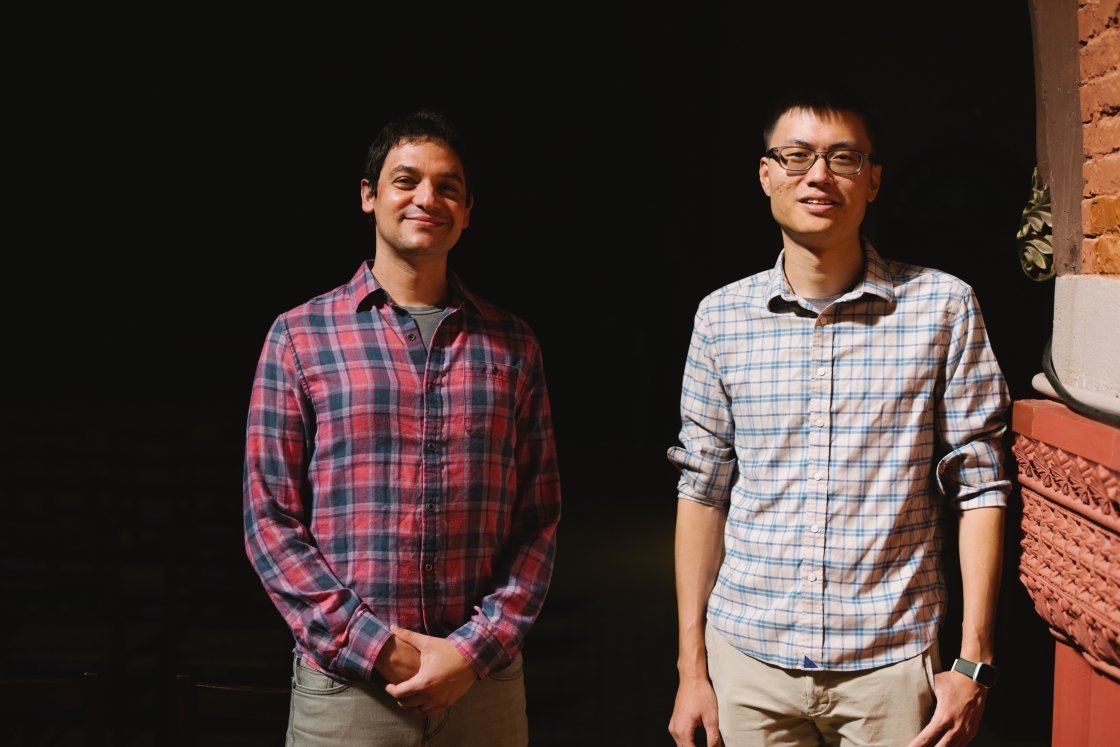May 16, 2019 – Cows have been integral to America’s economy and agricultural landscape since colonists arrived, and today the United States is the world’s largest producer of beef. However, the number of American farms has remained stagnant since the 1970’s. To examine modern farming in the Northeast, Dartmouth recently hosted a two-day conference on “Cows, Land, and Labor: Local Farming in a Globalized World,” which brought together about 200 attendees from the agriculture industry and academia. Participants discussed the ethics of consumption, market and land management in the face of climate change, and labor activism associated with bovine agriculture in the Northeast.
The conference was organized by Matthew J. Garcia, the Ralph and Richard Lazarus Professor of History and Latin American, Latino, and Caribbean Studies at Dartmouth College and owner of a 13-acre livestock farm. He wants to bring fresh attention to the evolution of agricultural practices and to clear up misconceptions about farming. The issues are personal to Garcia, whose family operated a meat market in Southern California, where he worked part-time as a meat-cutter from high school through graduate school. His grandparents toiled in the fields harvesting figs, lettuce, strawberries, and oranges, and worked in food service.
“Understanding how people raise livestock and produce food is critical to our health and our own sense of what may be right and wrong with our food system today,” explains Garcia.
He was inspired to organize last month’s conference as a result of his ongoing work with FUERZA: Migrant Outreach, a Dartmouth student-run organization which provides language resources to members of the Latino community in the Upper Valley and aims to promote social equality. The organization strives to build long-term, reciprocal relationships with migrant laborers. Garcia saw an opportunity to connect their work to that in the academy. He wanted to bring together farm laborers and owners, academics, and students, to engage in conversations and facilitate connections on sustainable agriculture. One such connection: Caitlin Hicks Pries, an assistant professor of biological sciences at Dartmouth, is already working with Niko Horster, local farmer and owner of Shire Beef in Vershire, Vt., to set up a long-term sampling of the soils on his farm, which conducts sustainable agriculture practices.
Students in Garcia’s Food History class will continue the conversation on campus with an exhibit in the Berry Brickway Gallery at the Dartmouth Library; it will open Thursday, May 23 and run through mid-June. The exhibit, which features a fiberglass cow, will examine Dartmouth’s own role in farming from around the turn of the 18th century, when it was common to find cows grazing on the campus green, to now, when Dartmouth students are traveling to nearby farms to teach English as a second language.
Melanie DuPuis, who co-organized the Cows, Land, and Labor Conference with Garcia and Horster, is planning to hold a follow-up conference, “How Much Meat Should We Eat?” at Pace University in 2020.
Garcia hopes that the conferences and upcoming exhibit will illustrate to both academics and the public how the agricultural economy of the Northeast is critical to its identity, history, and future. Garcia says everyone should become more aware of their food sources and encourages people to do so by talking to farmers, restaurant wait staff, and grocery store employees, particularly those behind the meat counter.
“Farming is not a drain on the world’s resources. It can be a practice used for good, such as by improving soil quality and sequestering carbon through rotational grazing practices or by raising a herd through holistic approaches,” says Garcia.
Garcia’s study of agriculture “from the bottom up,” A World of Its Own: Race, Labor, and Citrus in the Making of Greater Los Angeles, 1900-1970 (University of North Carolina Press, 2002), won the Oral History Association Book Award in 2003. His next book, From the Jaws of Victory: The Triumph and Tragedy of Cesar Chavez and the Farm Worker Movement (University of California Press, 2012), won the Taft Award for the best book on labor history in 2013.
Garcia is available for comment at: Matthew.J.Garcia@Dartmouth.edu

